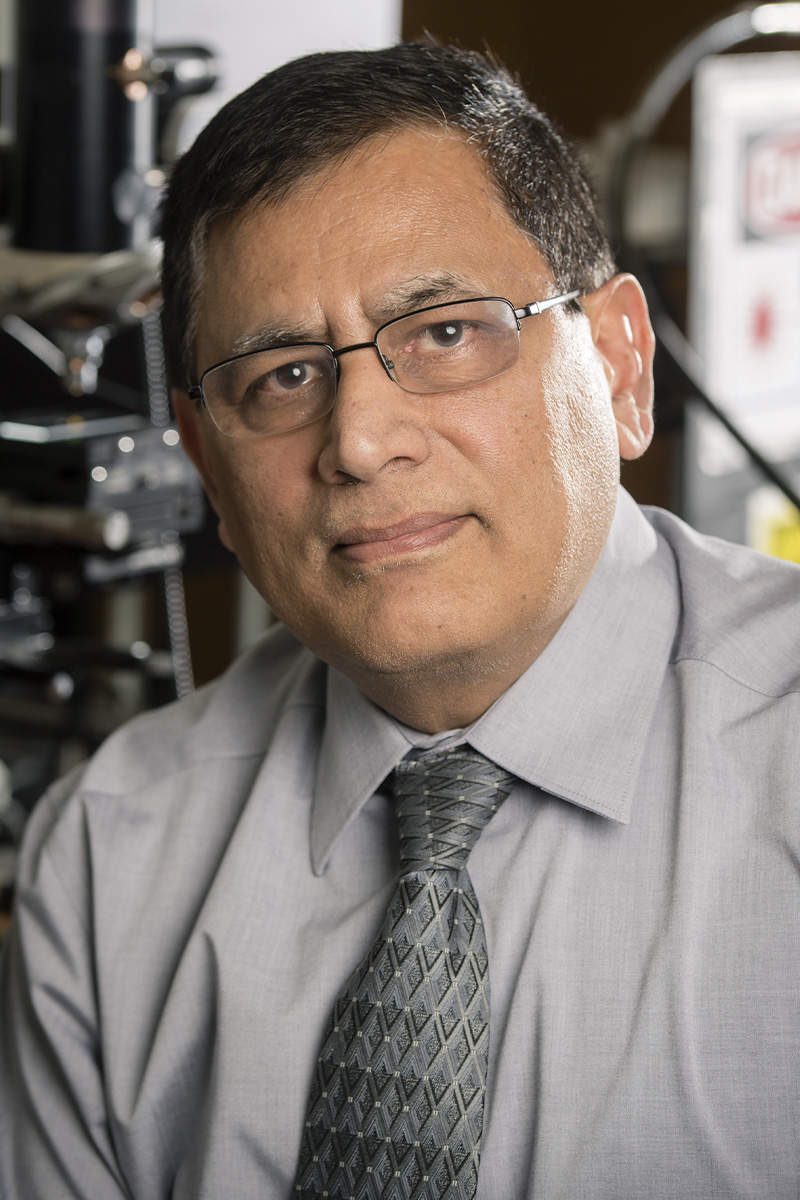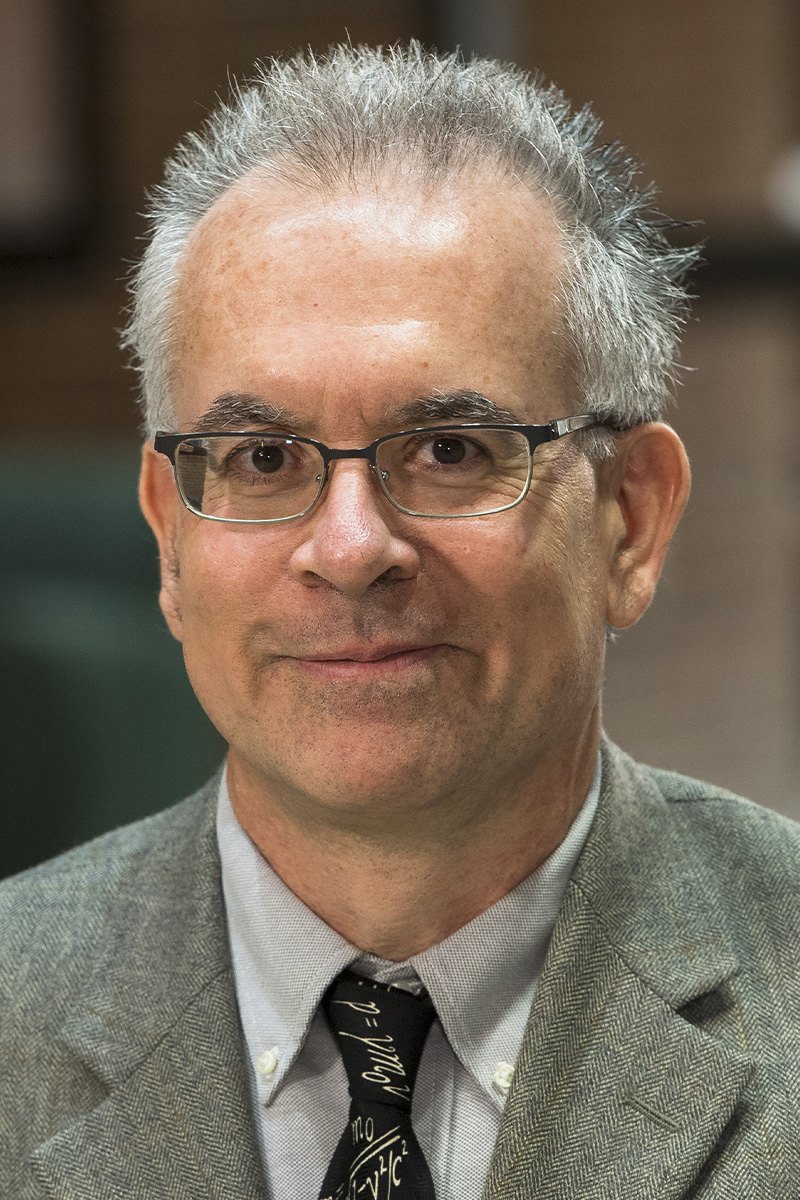

Emerging technologies being studied by UAB engineers and physicists focus on the behavior of advanced materials under extreme environments and stimuli. This includes super-hard materials that could be used in durable biological implants, such as knee replacements, or allow astronauts to cope with the extreme conditions on Mars.
Physics Professor and Director of UAB’s Center for Nanoscale Materials and Biointegration, Yogesh Vohra, Ph.D., is leading an interdisciplinary team of researchers working toward synthesis and characterization of nanoscale materials and structures and subsequent integration of these nanomaterials and nanostructures into practical biomedical devices and technologies.
These scientists, engineers, and physicians are building and manipulating extremely tiny structures that could make a big impact on patient care, from improving drug delivery to developing better implants for joints and blood vessels—and even boosting the success of transplants.
In his lab, Vohra uses plasma to create thin diamond film. Such films have many potential uses, such as coatings to make artificial joints long-lasting or to maintain the sharpness of cutting tools, developing sensors for extreme environments or creating new super-hard materials.
Using intense lasers with extremely short pulses, Ilias Perakis, Ph.D., theoretical and computational physicist and chair of the Department of Physics, collaborated with faculty at Ames National Lab and Iowa State University to catch and visualize electrons in a high-temperature iron-based superconducting material, which interacts as a new state of matter not observed in equilibrium. A new state of matter that could lead to better quantum engineering.
Demand for novel materials designed to respond in desired ways under extreme conditions and external stimuli is rapidly rising for applications in key technologies and industries. Perakis believes the discovery and understanding of new quantum materials with unique properties is an engine of progress for Birmingham and the nation as a whole.
He hopes to position UAB, Birmingham, and all of Alabama at the epicenter of the race to develop the advanced materials that will power the 21st century. Quantum phenomena are already being incorporated into technologies for next-generation computers, sensors, and detectors that demonstrate superior performance characteristics.
Quantum device capabilities envisioned include enhanced resolution in imaging, sensors, and detectors; advanced cryptography for more secure communication; and significantly larger computational capabilities at speeds far greater than those possible at present.